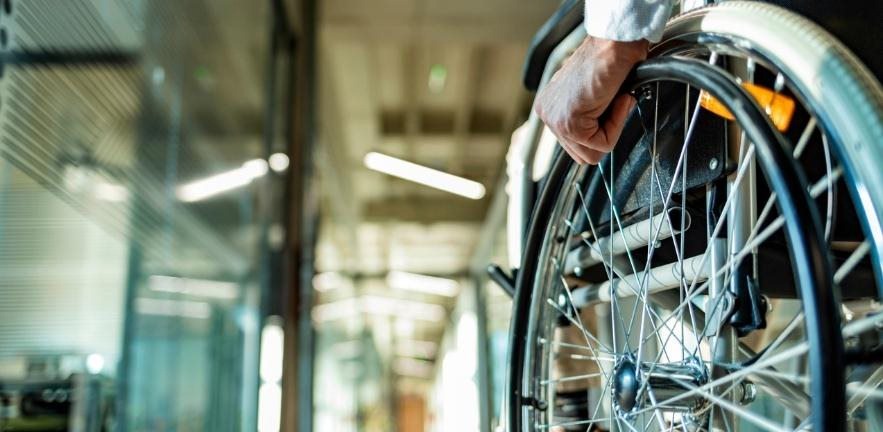From shelter to emancipation: rethinking our understanding of disabled people as active members of society.
A new study published in the Academy of Management Journal, co-authored by Shahzad Ansari, Professor of Strategy & Innovation at Cambridge Judge Business School, and Patricia Hein of Western University in London, Ontario, Canada, takes a fresh look at the subject of disability. Shaz reflects here on the findings of the study, entitled “From sheltered to included: the emancipation of disabled workers from benevolent marginalization”.
Our society imposes definitions of what it means to be disabled, and even the term “dis-ability” tends to suggest an abnormality (based on a physical impairment) vis-à-vis our societal benchmark. But it doesn’t have to be that way.
Based on a six-year study of a sheltered workshop in Germany that provided employment for disabled people, it’s clear that there are ways to overcome even such deeply entrenched invisible forms of unconscious marginalisation. The key lies in a collaborative process that overcomes what we call an “infantilising identity” for disabled people – prompting many of them to become “internal activists” and thus awakening others to question and reject the status quo they may have previously accepted.
Our internal activism finding applies as well to many other aspects of society, including equal rights as shown in the Black Lives Matter and Me Too movements. As we say in the study: “The Me Too movement may have provided opportunities for women not only to become more conscious of and vocal about previously unchallenged microaggressions and to reassess their own identity as a result but may also have made some of them become insider activists, campaigning to dismantle the sexist structures within their own workplace”.
Changing from guardian to ally
Marginalised individuals need to gain the support and willingness of those in power to change their role from guardian to ally, coupled by mutual sensitisation and consciousness raising. And while external activists often force societal changes, we also show how people in paternalistic structures can mobilise collective action for change from within as they gain unintentional access to alternative views on “who I am” – namely “disabled by society”.
As a disabled worker and internal activist in a workshop told us:
“I’ve been thinking about this a lot and that I blindly followed others in the past… I don’t think I should be treated differently…I am an active member of society and I have skills that are also beneficial for society. I’m not a burden.”
As reflected in this comment, we as a society should not define what disability is but listen to what disabled people have to say about their own identities. We as academics have hardly been blameless: there have been many studies on victims of overt or hostile forms of marginalisation – such as refugees or people of various sexual preference – but far less attention to cases where people are oblivious to their marginalisation and thus participate in it.
Study focuses on sheltered workshop in Germany
By way of background, Germany at the time of our research had 736 sheltered workshops employing more than 300,000 people – and in contrast to an inclusive model in countries such as the UK and Germany, these German workshops offer vocational rehabilitation in separate facilities designed to train people to join the mainstream labour market at a future date.
Workers in the sheltered workshop we studied are adults, mostly with cognitive impairments including autism, Down’s syndrome and learning impairments, with about of quarter having psychological impairments including bipolar disorder, schizophrenia or depression.
At the beginning of the study, we observed that both staff and disabled workers at the sheltered workshop unquestioningly followed a protocol in which workers were shielded from the mainstream labour market through a strict regime of work. Yet some workers, through positive feedback and inclusion from employers, had what we term a “moment of epiphany” in which they gained confidence in their ability to operate in mainstream society – and became internal activists along with like-minded staff.
After a critical mass asserted a self-determining identity, the workshop morphed into a place where workers had regular interaction with people outside the facility.
Several ways to create inclusive organisations
Crucially, this type of emancipation is allergic – in a good way. People can learn to ‘sample’ self-determination and thus gain confidence, and then inspire others through their stories of lived experiences.
We suggest several ways in which practitioners can create inclusive organisations with no marginalisation: a change of thinking that dismantles benevolent marginalisation; a change in communicating that moves from telling to listening, and a change in behaviour that promotes inclusive practices and safe spaces.
What’s exciting is that our findings have implications for other types of protectionist organisations including homeless shelters, orphanages and nursing homes – but, as at our sheltered workshop, people in power need to define their own roles as allies rather than guardians of such marginalised people.


